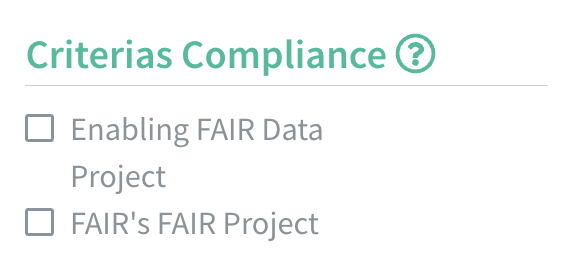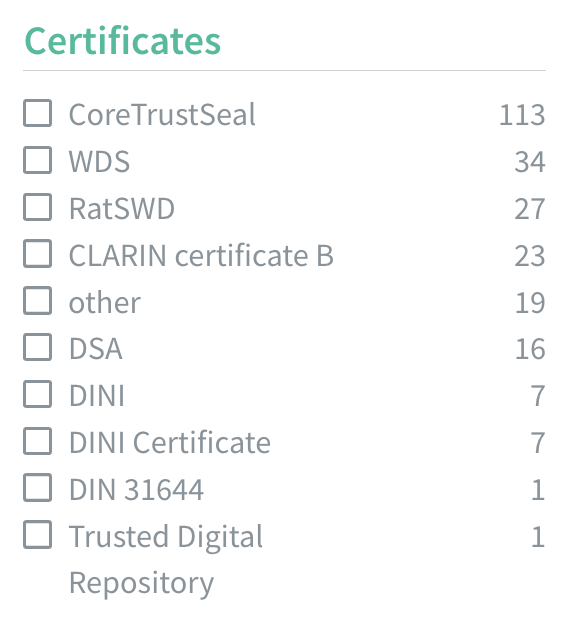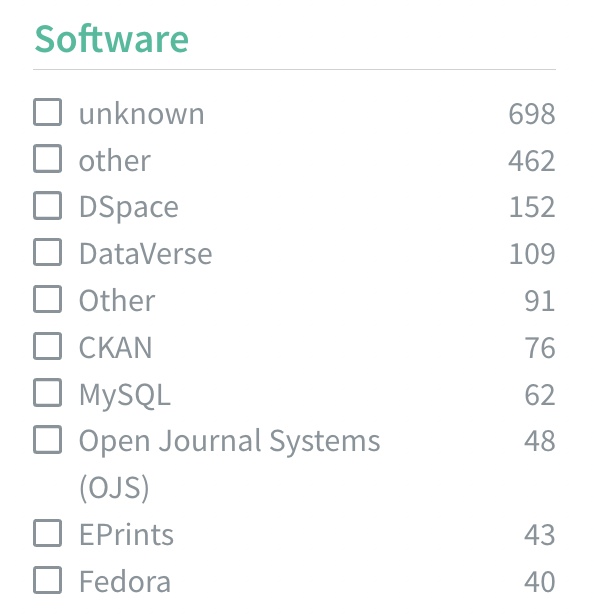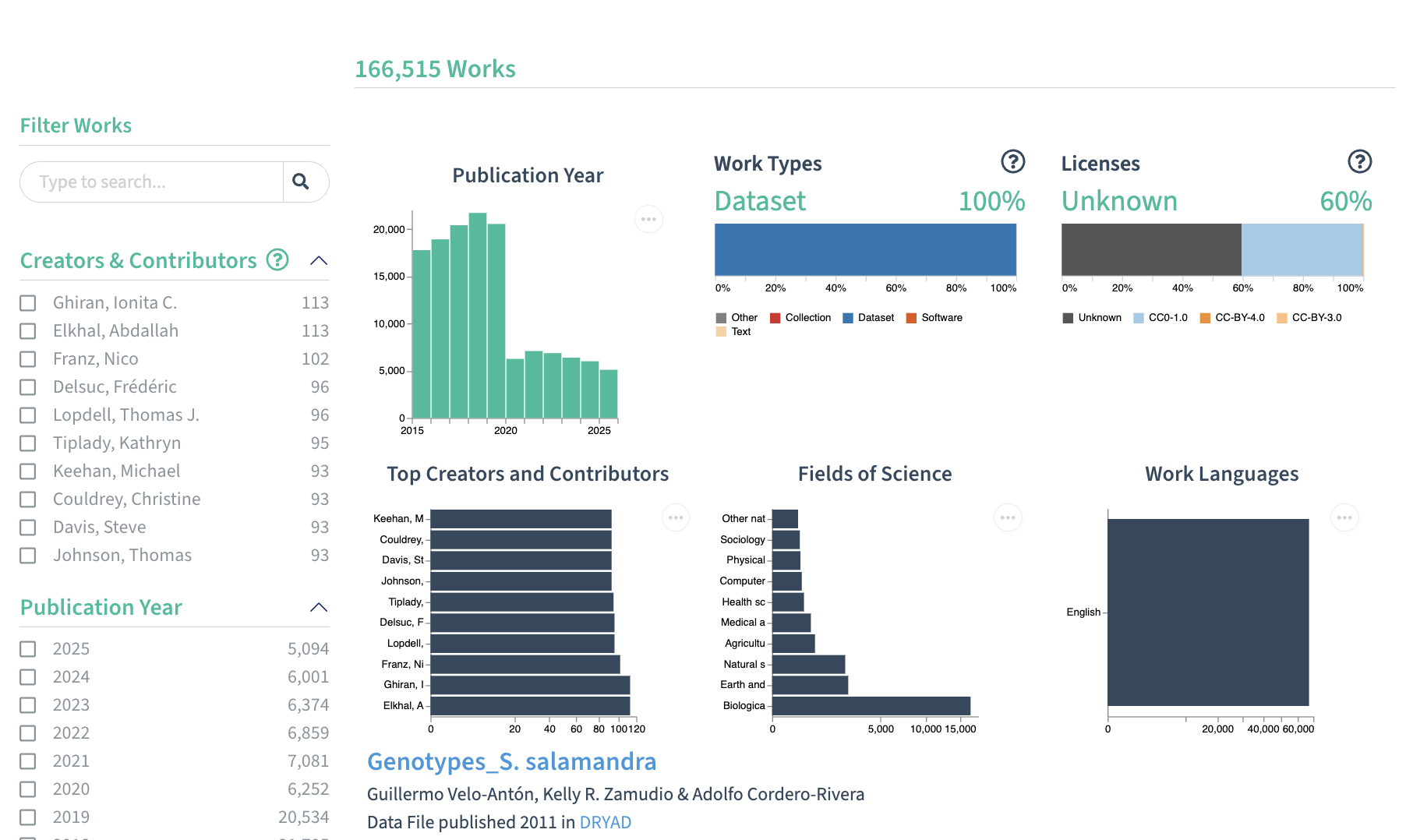Repositories in DataCite Commons
Use the Repositories tab to search for any Repository belonging to a DataCite Member.
Navigate to the Repositories tab and enter a repository name or keywords in the search box:

Filter
Use the check boxes in the panel of the left to filter the results based on the following criteria:
Criterias Compliance

Enabling FAIR Data Project
Repositories in re3data that meet the criteria of the Enabling FAIR Data Project:
- The repository is a domain repository for the Earth, space and environmental sciences (the repository has special expertise and is used by the community).
- The repository provides open access to its data (research data hosted by the repository are accessible without restrictions).
- The repository uses persistent identifiers (persistent identifiers such as DOIs uniquely identify datasets, enable the linking to publications, and help with discovery).
Repositories in re3data that meet the criteria of the FAIRsFAIR Project:
- The repository provides open access to its data (research data hosted by the repository are accessible without restrictions).
- The repository uses persistent identifiers (persistent identifiers such as DOIs uniquely identifier datasets, enable the linking to publications, and help with discovery).
- The repository is certified e.g., the CoreTrustSeal.
Certificates
Filter by any available certificate .

Software
Filter by the type of software used by the repository.

Repository Page
Click on the name name of the repository to open the individual Repository page in DataCite Commons.
Dashboard
The repository record summarises metrics of the works in the repository:

-
Works
The total number of DOIs in the repository. -
Citations
The total number of Citations for all of the repository. -
Views
The total number of Views of the repository’s works. -
Downloads
The total number of Downloads of the repository’s works.
Related Works
The charts at the bottom of the Repository record display information sourced from the DataCite metadata of the DOIs registered by the Repository:
-
Publication Year
Aggregate of the publicationYear (property 5) from DataCite DOI metadata. -
Work Types
Aggregate of the resourceTypeGeneral (property 10.a) from DataCite DOI metadata. -
Licenses
Aggregate of the rightsIdentifier (property 16.b) from DataCite DOI metadata. -
Top Depositors
Aggregate of nameIdentifier = ORCID (property 2.4) in the Creator property from DataCite DOI metadata. -
Fields of Science
Aggregate of Subject metadata (property 6) from DataCite DOI metadata, only where the OECD Fields of Science controlled vocabulary is used. -
Work Languages
Aggregate of the Language (property 9) from DataCite DOI metadata.

Updated 4 months ago
